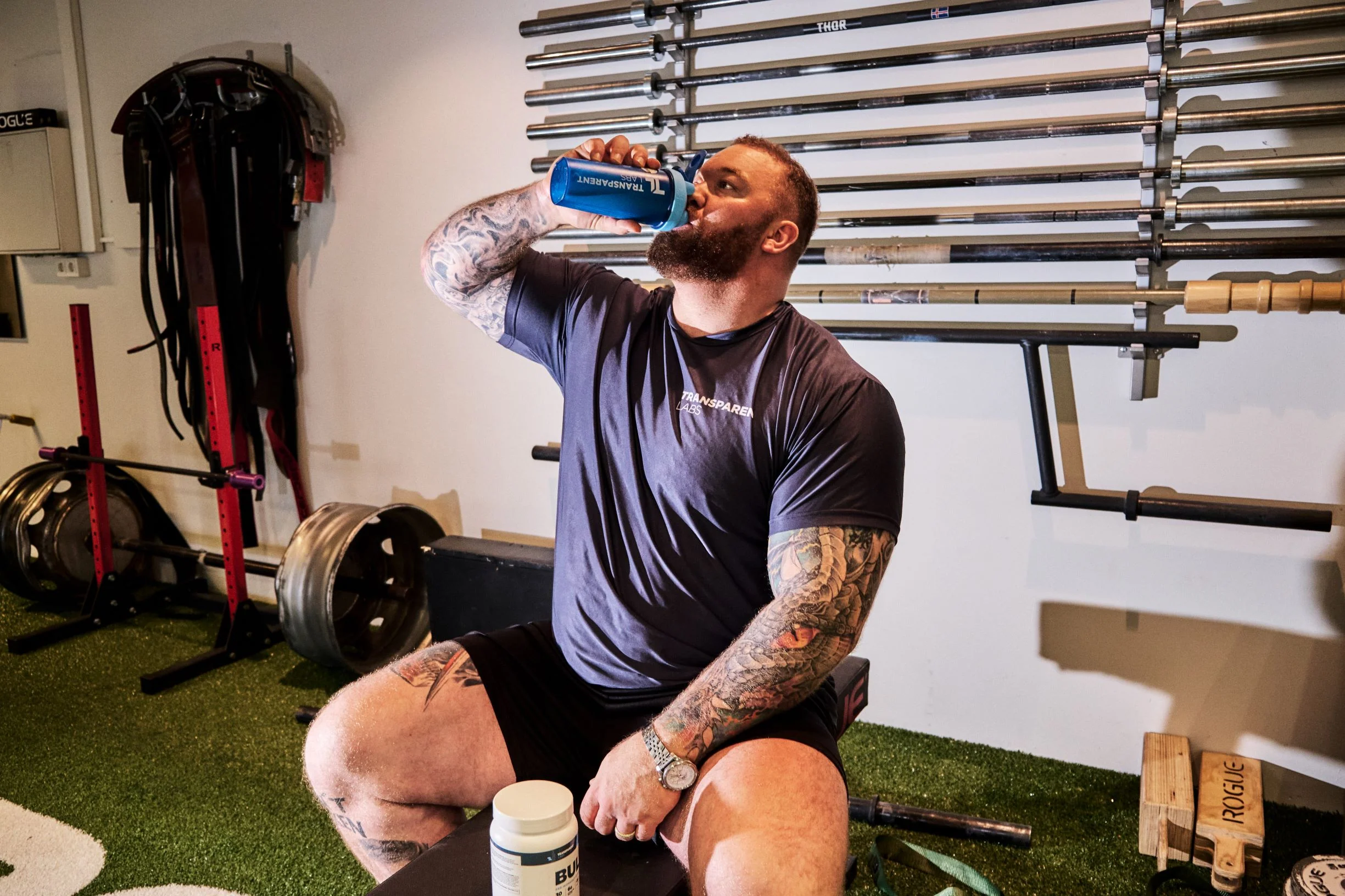Analyze the effectiveness of various nutritional strategies for enhancing exercise performance and recovery.
is cover the impact of nutritional strategies on exercise performance. Explore effective ways to enhance performance and recovery with

Nutritional strategies play a crucial role in enhancing exercise performance and facilitating recovery. Proper nutrition can provide the body with the necessary nutrients and energy to optimize physical performance and repair muscle tissue. Here's an analysis of various nutritional strategies and their effectiveness in this regard:
Macronutrient Balance:
Carbohydrates: Carbohydrates are the body's primary source of energy. Consuming an adequate amount of carbohydrates before exercise can improve endurance and overall performance. Carbohydrate loading before endurance events can help sustain energy levels.
Proteins: Protein is essential for muscle repair and growth. Consuming protein post-exercise helps repair muscle tissue. Protein intake should be distributed throughout the day to support muscle protein synthesis.
Fats: While fats are a secondary energy source during exercise, they are vital for overall health. A balanced intake of healthy fats can support long-term performance and recovery.
Effectiveness: An appropriate balance of these macronutrients, depending on the type and intensity of exercise, is effective in enhancing performance and aiding recovery. Athletes often follow specific ratios tailored to their needs.
Hydration:
Water: Staying adequately hydrated is critical for exercise performance. Dehydration can lead to decreased endurance, muscle cramps, and overheating. Proper fluid intake should be maintained before, during, and after exercise.
Electrolytes: For intense or prolonged exercise, replacing lost electrolytes (sodium, potassium, magnesium) is crucial to maintain fluid balance and prevent muscle cramps.
Effectiveness: Staying hydrated is highly effective in improving exercise performance and preventing dehydration-related issues.
Pre-Workout Nutrition:
Consuming a balanced meal or snack containing carbohydrates and protein about 2-3 hours before exercise can provide sustained energy and prevent hunger during workouts.
Effectiveness: Effective pre-workout nutrition can help sustain energy levels and improve overall performance.
Post-Workout Nutrition:
Consuming a combination of carbohydrates and protein within 30 minutes to 2 hours after exercise can help with muscle recovery and glycogen replenishment.
Effectiveness: Post-workout nutrition is critical for muscle repair and glycogen replenishment, promoting faster recovery.
Supplements:
Some supplements, such as creatine, caffeine, and beta-alanine, have been shown to enhance exercise performance when used appropriately. However, their effectiveness varies based on individual responses and specific exercise goals.
Effectiveness: Supplements can be effective but should be used with caution, under the guidance of a healthcare professional or sports nutritionist.
Meal Timing:
Proper timing of meals and snacks can impact performance. For example, consuming a carbohydrate-rich meal a few hours before a long run can help maintain energy levels.
Effectiveness: Meal timing can be effective when aligned with exercise timing and goals.
Individualization:
The effectiveness of nutritional strategies can vary greatly between individuals. It's essential to tailor nutrition plans to individual needs, considering factors like age, gender, body composition, and specific athletic goals.
Recovery Strategies:
Adequate nutrition is essential for post-exercise recovery. This includes protein intake for muscle repair, carbohydrates for glycogen replenishment, and anti-inflammatory foods to reduce muscle soreness.
Effectiveness: Proper recovery nutrition is highly effective in reducing muscle soreness and promoting faster recovery between workouts.
In conclusion, the effectiveness of nutritional strategies for enhancing exercise performance and recovery depends on individual needs, exercise type, intensity, and goals. A balanced approach that includes proper macronutrient balance, hydration, timing, and individualization is key to optimizing performance and recovery. Consultation with a registered dietitian or sports nutritionist can help create a tailored nutrition plan for athletes and fitness enthusiasts.
Carbohydrate Loading:
For endurance athletes participating in events lasting more than 90 minutes, carbohydrate loading can be effective. This involves increasing carbohydrate intake in the days leading up to the event to maximize glycogen stores in muscles and liver.
Effectiveness: Carbohydrate loading can significantly improve endurance performance by ensuring a readily available energy source during prolonged activities.
Micronutrients:
Essential vitamins and minerals like vitamin D, calcium, iron, and zinc play critical roles in muscle function, bone health, and overall well-being. Deficiencies can hinder exercise performance and recovery.
Effectiveness: Adequate intake of these micronutrients is essential for maintaining optimal health and athletic performance. Supplements may be necessary for individuals with deficiencies, but a balanced diet should be the primary source.
Anti-Inflammatory Foods:
Incorporating foods rich in antioxidants and anti-inflammatory compounds, such as fruits, vegetables, and omega-3 fatty acids, can help reduce exercise-induced inflammation and muscle soreness.
Effectiveness: A diet high in anti-inflammatory foods can promote faster recovery and reduce the risk of injury, especially for athletes engaged in intense or frequent training.
Individualized Plans:
Athletes have unique nutritional needs based on their sport, body composition, metabolism, and training intensity. Working with a sports nutritionist to create a personalized nutrition plan can optimize performance and recovery.
Effectiveness: Individualized plans take into account specific needs and goals, maximizing the effectiveness of nutritional strategies.
Periodization:
Nutrition should be adapted to match the varying demands of training and competition. For example, during intense training phases, a higher carbohydrate intake may be necessary, while during rest or recovery periods, a focus on nutrient-dense foods can support overall health.
Effectiveness: Periodization of nutrition aligns with the athlete's training cycle, ensuring the right nutrients at the right times for optimal performance and recovery.
Monitoring and Adaptation:
Regular monitoring of body composition, performance metrics, and energy levels can help athletes adjust their nutritional strategies as needed. This allows for ongoing optimization and the prevention of overtraining or undernutrition.
Effectiveness: Monitoring and adapting nutritional strategies based on individual responses is crucial for long-term success in enhancing exercise performance and recovery.
Psychological Factors:
Mental well-being and psychological factors, such as stress and sleep quality, can significantly impact exercise performance and recovery. Proper nutrition, including foods rich in tryptophan (a precursor to serotonin) and magnesium, can support better sleep and mood regulation.
Effectiveness: Addressing psychological factors alongside nutrition is essential for overall athlete health and performance.
In summary, effective nutritional strategies for enhancing exercise performance and recovery require a comprehensive and individualized approach. Athletes should consider their specific sport, training regimen, and personal factors when designing their nutrition plans. Regular assessment, adaptation, and collaboration with nutrition professionals are key components of success in optimizing nutrition for athletic performance. A holistic approach that combines proper macronutrient balance, hydration, timing, and micronutrient intake is vital for achieving peak performance and promoting optimal recovery.
Carbohydrate Timing:
The timing of carbohydrate consumption can be crucial. Consuming carbohydrates before, during, and after exercise can help maintain blood glucose levels, delay fatigue, and support glycogen replenishment.
Effectiveness: Properly timing carbohydrate intake can provide a sustained source of energy during workouts and expedite recovery afterward.
Protein Quality and Timing:
Not only is the quantity of protein important, but the quality and timing of protein consumption matter as well. High-quality protein sources, such as lean meats, fish, dairy, and plant-based options like beans and quinoa, can promote muscle protein synthesis when consumed after exercise.
Effectiveness: Consuming high-quality protein shortly after exercise can enhance muscle recovery and growth.
Caloric Intake:
Athletes need to match their caloric intake with their energy expenditure. Under-eating can lead to fatigue, reduced performance, and impaired recovery, while excessive calorie intake can lead to unwanted weight gain.
Effectiveness: Monitoring and adjusting caloric intake based on activity levels and goals are essential for maintaining energy balance.
Nutrition for Specific Sports:
Different sports have varying nutritional requirements. For example, endurance athletes may require more carbohydrates, whereas strength athletes may need additional protein. Tailoring nutrition plans to the demands of the specific sport is essential.
Effectiveness: Sport-specific nutrition plans can optimize performance and recovery by addressing the unique needs of each athlete.
Hydration Strategies:
Dehydration can severely affect exercise performance and recovery. Athletes should develop hydration strategies that consider sweat rates, climate conditions, and individual tolerance to fluids.
Effectiveness: Proper hydration is a foundational element of athletic success and can prevent issues like heat-related illnesses.
Mindful Eating:
Practicing mindful eating, which involves paying attention to hunger and fullness cues, can help athletes avoid overeating or undereating. This approach promotes a healthier relationship with food and better nutrient utilization.
Effectiveness: Mindful eating can help athletes maintain an appropriate body composition while fueling their bodies for optimal performance.
Specialized Diets:
Some athletes may follow specialized diets, such as vegetarian, vegan, or gluten-free diets, for various reasons. Ensuring that these diets are well-balanced and meet nutritional needs is crucial for performance and recovery.
Effectiveness: Specialized diets can be effective for athletes when carefully planned to provide all essential nutrients.
In conclusion, nutritional strategies for enhancing exercise performance and recovery are multifaceted and should be tailored to individual needs and goals. Regular assessment, ongoing education, and collaboration with healthcare professionals, registered dietitians, or sports nutritionists can help athletes optimize their nutrition plans. A holistic approach that encompasses macronutrient balance, hydration, timing, and individual factors is paramount for achieving peak performance, promoting optimal recovery, and sustaining long-term athletic success. Nutrition is a dynamic component of an athlete's training regimen that requires attention and adaptation throughout their career.
What's Your Reaction?
















